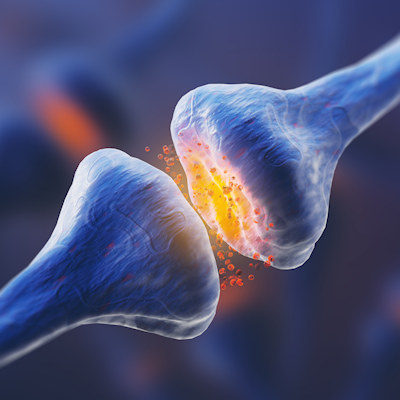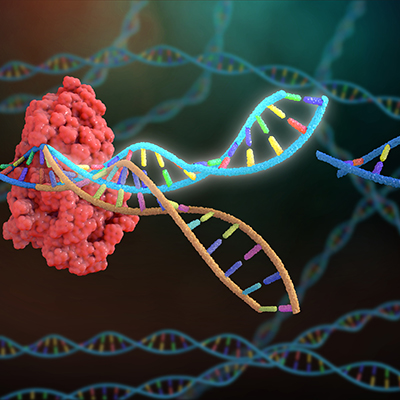 Penn State-led team develops more efficient system for delivering CRISPR to stem cells
Penn State-led team develops more efficient system for delivering CRISPR to stem cells
Modified mRNA (modRNA)-based CRISPR systems improve on the transfection and knockout efficiency of plasmid-based systems in human pluripotent stem cells (hPSCs), a Penn State-led team of interdisciplinary researchers has found. Read More
 Multiomics analysis reveals potential opportunity for early intervention in Alzheimer’s
Multiomics analysis reveals potential opportunity for early intervention in Alzheimer’s
A gene that carries a strong risk for Alzheimer’s disease drives changes in the brain’s blood vessels that lead to problems in synapses and ultimately cognitive dysfunction, according to a study in mice. Read More
 Stem cell-derived embryos open door to study of developmental health, disease
Stem cell-derived embryos open door to study of developmental health, disease
Researchers have created synthetic embryos with a brain, beating heart, and the foundations of other organs from mouse stem cells, helping to understand why some embryos fail while others go on to develop into a fetus as part of a healthy pregnancy. Read More
 CRISPR reveals way to enhance the function, persistence of CAR T-cell therapies
CRISPR reveals way to enhance the function, persistence of CAR T-cell therapies
The use of CRISPR knockout screens have uncovered a new regulator of immunity that could enhance the function and persistence of anticancer T-cell therapies, according to a study published on August 24 in the journal Nature. Read More
 Harvard’s Wyss Institute spins out protein detection technology to create Spear Bio
Harvard’s Wyss Institute spins out protein detection technology to create Spear Bio
The Wyss Institute for Biologically Inspired Engineering at Harvard University has licensed technology for detecting proteins in small patient samples to a newly formed startup. Read More
 Boosting neuron production offers viable treatment strategy for Alzheimer’s: mice study
Boosting neuron production offers viable treatment strategy for Alzheimer’s: mice study
A new study from University of Illinois Chicago researchers shows that boosting neurogenesis, the process by which new neurons are formed in the brain, increases the number of newly formed neurons involved in storing and retrieving memories in the hippocampus of mice with Alzheimer’s disease. Read More
 Discovery of widespread DNA damage in stem cell lines spurs call for pre-use sequencing
Discovery of widespread DNA damage in stem cell lines spurs call for pre-use sequencing
More than 70% of stem cell lines derived from human skin cells have damage to their DNA that could compromise their use in research and cell-based therapies, according to a study published August 11 in Nature Genetics. Read More
 CRISPR-Cas9 gene editing can give rise to cell toxicity, genomic instability: study
CRISPR-Cas9 gene editing can give rise to cell toxicity, genomic instability: study
Gene editing using CRISPR-Cas9 can lead to cell toxicity and genome instability depending on the targeted spot of the human genome, according to a new study by researchers at the Institute for Research in Biomedicine Barcelona. Read More
 NIH team creates 3D structure of twinkle protein, sheds light on mitochondrial diseases
NIH team creates 3D structure of twinkle protein, sheds light on mitochondrial diseases
Researchers from the National Institutes of Health (NIH) have used cryo-electron microscopy and other techniques to create a 3D structure of the twinkle protein, the final piece of the human minimal mitochondrial replisome to be structurally characterized. Read More
 Molecular, genetic mechanisms of microglia predispose individuals to Alzheimer's: study
Molecular, genetic mechanisms of microglia predispose individuals to Alzheimer's: study
Mount Sinai researchers contend they have achieved an “unprecedented” understanding of the genetic and molecular mechanisms in human microglia, immune cells that reside in the brain, providing insights into how they contribute to the development and progression of Alzheimer’s disease. Read More
Conferences
Science Briefs
Member Rewards
Earn points for contributing to market research. Redeem your points for merchandise, travel, or even to help your favorite charity.
Research Topics
Interact with an engaged, global community of your peers who come together to discuss their work and opportunities.
Connect
Tweets by @ScienceBoard






